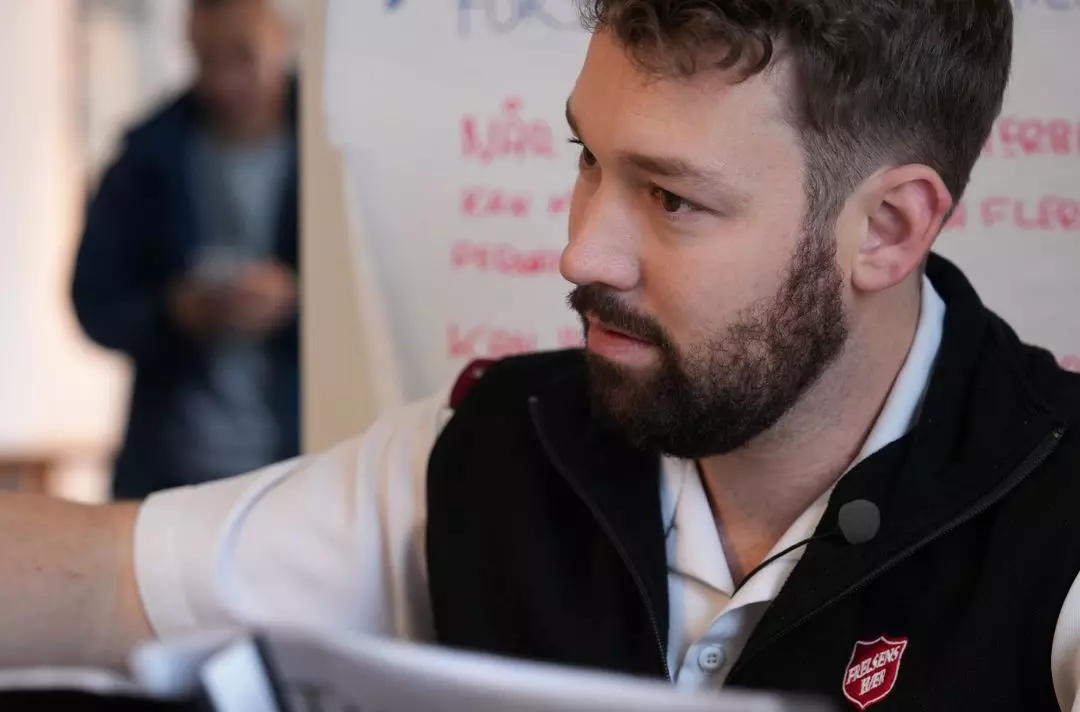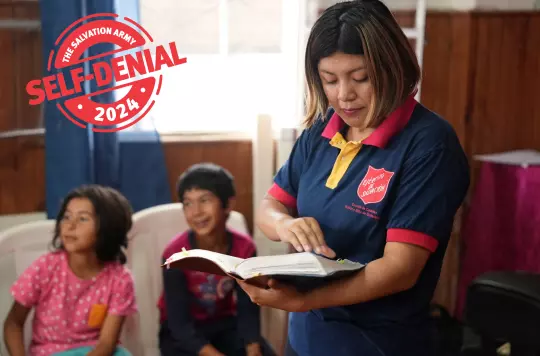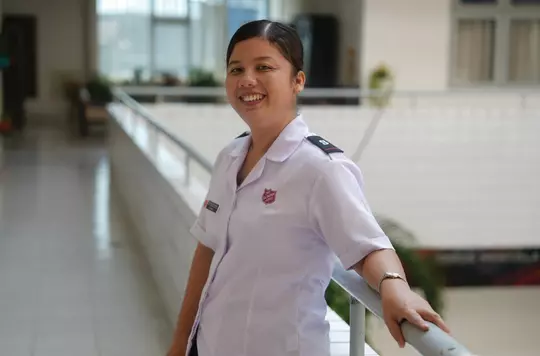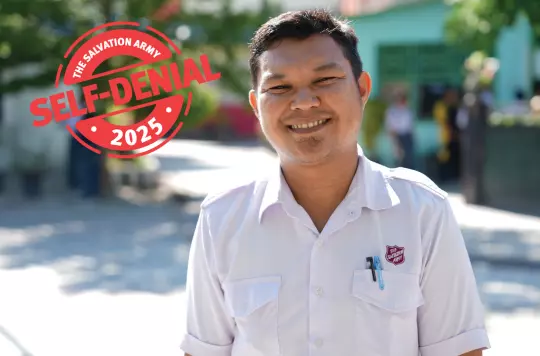11 February 2024
Self-Denial 2024: Transforming lives in Greenland
Captain Nathanael's story
Captain Nathanael Münch shares his experience as a corps officer in Greenland for the 2024 Self-Denial Appeal.
This year’s Self-Denial Appeal runs from 4 February to 3 March with a focus on the life-changing impact of officers across the globe. Nuuk has a population of less than 20,000 people, the equivalent of a small town in the UK, and yet Nuuk is Greenland’s capital city. The country is part of the Kingdom of Denmark, and Greenlanders have Danish citizenship. Nuuk may be small, but Greenland is huge, mostly covered in snow and ice.
During the coldest months, the daily average temperature is minus 5C. The Salvation Army has been working here since 2012, welcoming people through its doors from early in the morning.
‘A lot of people that come to The Salvation Army here are homeless,’ Nathanael explains. ‘Even more have addictions to alcohol or pot, and that defines a lot of what we do.
‘Williams Café is an open house. Anyone can come in, get free coffee, free tea. We try to take as many opportunities as we can get to have conversations with people, and they often share about some sort of difficulty. Obviously we try to help with whatever way we can. In some cases it’s prayer, in some cases it’s just listening, in some cases it’s helping people go to the places they can get the right help.’
Homelessness is a problem in Nuuk. As a proportion of the population, more people are homeless here than in any other European city.
Getting a good understanding of people’s needs and difficulties is key to The Salvation Army’s work. Learning Greenlandic – the language most people speak here – is important, but it’s a notoriously difficult language to learn as an adult.
‘It’s a very different language. It’s part of the Inuit language. There are a lot of pastoral care talks that need to happen and they are limited by the need for a translator,’ Nathanael admits. ‘So many conversations would be better if I could properly understand and people could express themselves freely.
‘Sunday is obviously the day of the Lord. We do a Sunday service. The older generation will speak Danish really well, but also Greenlandic, while younger generations speak much more Greenlandic. We sing in Greenlandic. We read Scripture in Greenlandic. When people give their testimony, we ask that they do it in their own language. But all the talking in between – at least the talking I’m doing – is in Danish.

‘Singing is something that can bring people together, first of all because Greenlanders have a proud hymn tradition and that is a connection point. For most people, especially the older generations, singing hymns is something that unites people and touches people.
‘The culture here is not a culture where people talk about feelings much, and during singing the emotions can come out. So it’s both a connection with the Lord and a real expression of worship, as well as it’s therapy and it’s community.
‘Success is seeing people’s lives transform – the small steps, but also the big steps and everything in between. Whether it’s people reconnecting with their kids, seeing people make commitments for the Lord, seeing people move forward and ask for prayer in that first step with so much hope, to just be there on the sidelines, participating in people’s joy and people’s freedom, it’s amazing.
‘Officership is about sharing the gospel with people while living it out. We talk about spiritual work and social work, but it’s really the same thing. What Jesus is talking about is loving our neighbour, is walking the extra mile, is forgiving. This is what we do.’
Discover more

Salvationist introduces the 2024 Self-Denial Appeal, which focuses on supporting officers around the world.


